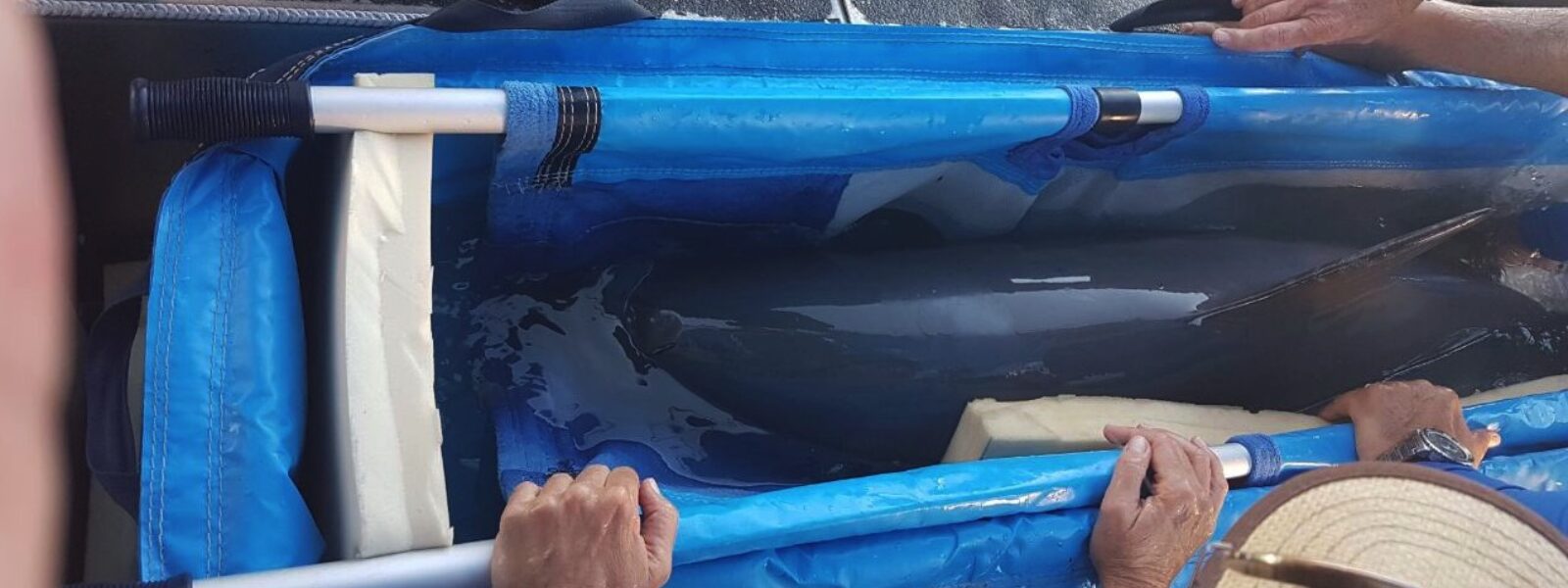

Good news! Vaquita CPR, an endeavor that was supposed to save the Vaquita from extinction, has finally been terminated, due to it’s completely abysmal failure.
The plan, known as Vaquita CPR, may have sounded good at first glance. Four dolphins who are held captive by the Navy - named Andrea, Fathom, Katrina and Splash - were transported to San Felipe, Mexico a few weeks ago, where they were deployed to the wild ocean to locate and round up the vaquita, of whom there are only an estimated 30 individuals left. Any vaquita they captured would then be sent to a netted cage in the ocean, where scientists would attempt to establish a breeding colony to eventually release back into the wild.
A few weeks ago, the first vaquita was captured - a juvenile male - but he was released due to “high stress levels”. Shortly after the capture of another female individual, whom they always referred to as "it", died as a result of the team’s “rescue efforts”.
With much lamenting over the project’s utter failure, its important to recognize the reason for it: the speciesism that is baked into its ideological foundation.
The problem at its core is this: the effort, and every person involved, categorically refused to take into consideration the feelings of any of the cetaceans involved. Unfortunately, this is all too typical of the contemporary conservation movement – one that regards other species only in terms of populations and their value to ecosystems, denying individuals of other species any ability to feel, think, or have opinions as to how they'd like to be treated.
This problem is something that a burgeoning movement, known as Compassionate Conservation, attempts to circumvent. From this compassionate perspective, every individual matters – take, for example, the bottlenose dolphins who were tasked with rounding up the porpoises. Questions as to how they might feel about swimming free in the ocean would be asked, since this is something that they’ve been denied for decades - or in the cases of captive born individuals, their entire lives. What might Katrina and Fathom and Andrea and Splash think of the porpoises they encounter out there in the depths? And how will it feel for them to now be returned to their Navy cages after the program is over, stored away like equipment, until the next time they become “useful” to the Navy?
Then there is the side of the Vaquita to consider. As a species that is facing extinction, thanks to deadly fishing practices that are catching and drowning them in shrimp and fish gill nets, they are already likely stressed. Imagine seeing one’s own kind dwindle to nearly nothing; what a feeling of isolation and solitude that must be. The last thing these porpoises need is more stress and deaths among their numbers.
Even if Vaquita CPR managed to keep a vaquita alive, their plan was to tear apart families for long periods of time, and in some cases forever, such as has already happened. While it remains unclear, there is also a possibility that they intended to subject females to forced impregnation – rape – in order to build up the population again.
Isolation, rape, ripping apart of families, and death: these are the unfortunate hallmarks of “conservation”, the sort that zoos and aquariums, in particular, love to employ. While intentions might be good, the methods, and perceptions and treatment of others, needs to be questioned.
A much more effective way to save the lives of the Vaquita would be to remove from the waters what is killing them: the gill nets. Add to this the fact that the Navy will benefit from all the positive press this project is attempting to generate, and you have the perfect storm of conservation – one that has already caused a great deal of suffering for the beleaguered Vaquita.
It is outrageous that one vaquita had to die in order to illustrate the folly of approaching other beings with such callousness and disregard. Let’s hope that the Navy and those involved with Vaquita CPR don’t attempt to “save” any other species ever again.
Photo sourced from article.